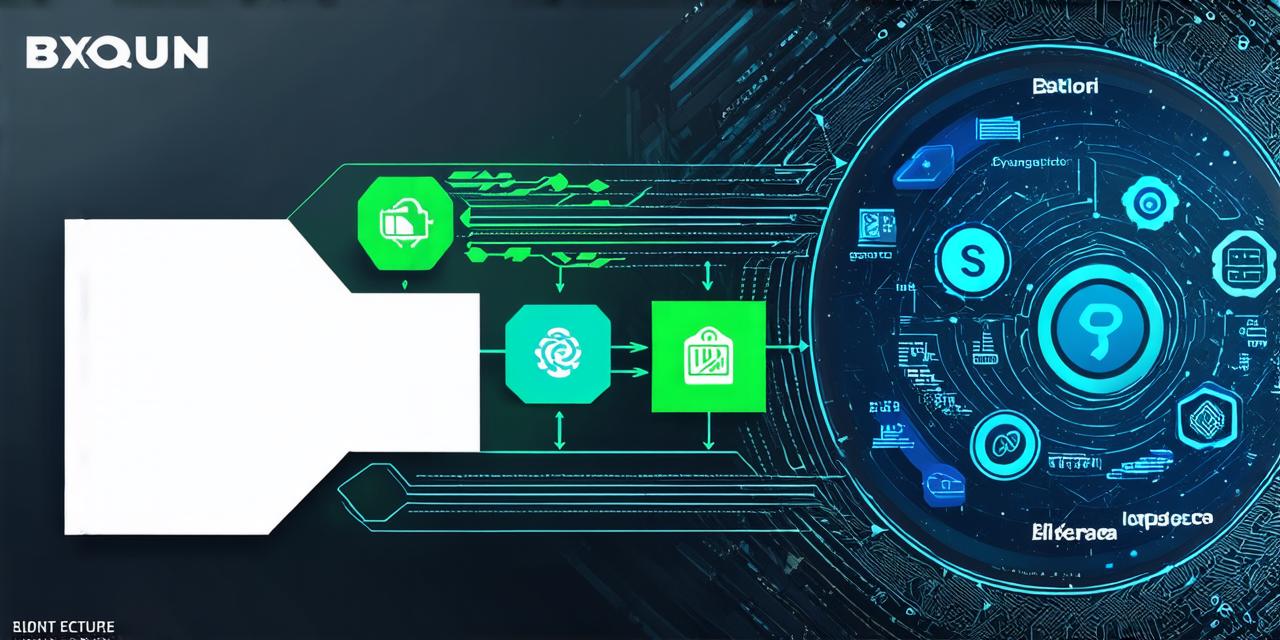Corrected HTML code:
Understanding the Basics of Blockchain

Before diving into the world of blockchain development, it’s essential to understand its basics. Here are some key concepts you should be familiar with:
- Decentralization: In a blockchain-based system, there is no central authority controlling the network. Instead, every participant in the network has an equal say in the decision-making process.
- Distributed ledger technology: Blockchain uses a distributed ledger to store and record transactions securely. This means that once data is recorded on the blockchain, it cannot be altered or deleted.
- Cryptography: Blockchain relies heavily on cryptography to ensure the security and privacy of user data. Cryptography involves the use of mathematical algorithms to encrypt and decrypt data.
- Smart contracts: Smart contracts are self-executing contracts with the terms of the agreement between buyer and seller being directly written into lines of code. They enable automated and secure execution of contractual agreements.
- Nodes: Nodes are individual computers or devices that participate in the blockchain network. They validate transactions, maintain the distributed ledger, and ensure the integrity of the network.
Learning the Programming Languages Used in Blockchain Development
To become a blockchain developer, you will need to learn at least one programming language used in this field. Here are some popular languages to consider:
- Solidity: Solidity is a high-level programming language used for developing smart contracts on the Ethereum blockchain. It is similar to JavaScript and can be easily learned by developers with experience in that language.
- Vyper: Vyper is another programming language used for developing smart contracts on the Ethereum blockchain. It is similar to Solidity, but more concise and easier to read.
- Java: Java is a popular programming language used in building blockchain-based applications. It’s widely used in enterprise software development and can be a great choice for developers who want to work on large-scale projects.
- Python: Python is a versatile programming language that can be used for various tasks, including blockchain development. It’s easy to learn and has a large community of developers who can provide support and resources.
- C++: C++ is another popular programming language used in blockchain development, particularly in the development of consensus algorithms. It’s known for its efficiency and performance, making it a great choice for high-performance applications.
Getting Familiar with Blockchain Platforms
To become a blockchain expert, you need to be familiar with various blockchain platforms and their unique features. Here are some popular platforms to consider:
- Ethereum: Ethereum is the most widely used blockchain platform for building decentralized applications (dApps). It supports smart contracts and has a large ecosystem of developers and tools.
- Bitcoin: Bitcoin is the first and most well-known cryptocurrency, built on the blockchain technology. It’s a great platform to learn about the basics of blockchain development and how it works.
- Hyperledger: Hyperledger is an open-source blockchain framework that enables the creation of secure and scalable distributed ledgers. It’s designed for enterprise applications and has a focus on privacy and confidentiality.
- Corda: Corda is another popular blockchain platform designed for enterprise applications. It’s built on the Ripple protocol and has a focus on interoperability with other systems.
- EOS: EOS is a decentralized operating system that supports the deployment of industrial-scale dApps. It’s known for its fast transaction speeds and scalability, making it a great choice for high-performance applications.
Practice Makes Perfect: Building Projects and Contributing to Open-Source Communities
The best way to become a blockchain expert is by practicing what you learn. Here are some tips on how to do that:
- Build projects: Start by building small projects, such as a simple dApp or smart contract.
